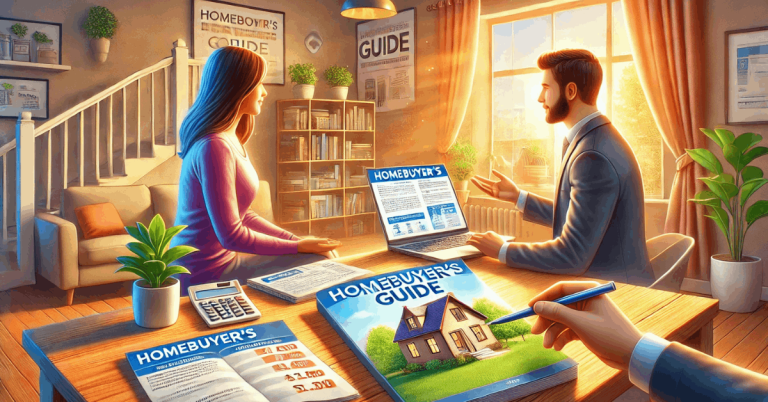This article will help you understand the basics of mortgages and how to secure the best home loan rates for your financial needs.
It breaks down key factors influencing rates and practical steps to find the most competitive offers. This guidance lets you make informed decisions and save money on your home purchase.
Understanding Mortgages
A home often requires a mortgage, a loan specifically for purchasing property. Knowing the basics of mortgages helps you choose the best option for your needs and budget.
What Is A Mortgage?
A mortgage is a loan used to buy property you pay back with interest over time. The property is collateral, meaning the lender can take it back if you don’t repay. Mortgages have different terms and structures to fit various financial situations.
Different Types Of Mortgages
There are several mortgage types, each designed for specific needs. Understanding these can help you choose the one that fits your situation best. Below are the most common types:
- Fixed-Rate Mortgage: The interest rate stays the same for the entire loan term, offering stable payments.
- Adjustable-Rate Mortgage (ARM): Interest rate starts low but can change over time, typically based on market rates.
- FHA Loan: Government-backed loan with lower down payment requirements, ideal for first-time buyers.
- VA Loan: Special loan for veterans and active military members, often with no down payment required.
Loan Terms Explained (15-Year Vs. 30-Year Loans)
Loan terms determine how long you have to repay your mortgage. A 15-year loan often has lower interest rates and helps you pay off your home faster, but monthly payments are higher.
A 30-year loan offers lower monthly payments, making it more affordable, but you’ll pay more interest over time. Choosing the correct term depends on your financial situation and long-term goals.
Key Factors That Affect Mortgage Rates
Several factors influence mortgage rates. Knowing them helps you prepare and make cost-effective decisions.
Credit Score: Why It Matters And How To Improve It
Your credit score plays a big role in determining your rate. Higher scores mean better terms.
- Pay bills on time and lower credit card balances.
- Check your report for errors and fix them promptly.
Down Payment: How Much To Put Down And The Impact On Rates
A larger down payment often means a lower rate.
- Aim for 20% to avoid private mortgage insurance (PMI).
- Balance your down payment with savings for emergencies.
Loan Amount: The Relationship Between Loan Amount And Interest Rates
Your loan size impacts your rate.
- Large loans or jumbo loans usually have higher rates.
- Borrow only what you need to avoid extra costs.
Loan Type: Choosing Between Conventional, FHA, And VA Loans
Different loans have unique benefits.
- Conventional: Best for strong credit and bigger down payments.
- FHA: Good for low credit or smaller down payments.
- VA: Ideal for veterans with no down payment.
Property Type: Impact Of The Property’s Location And Type On Your Rate
The type and location of the property affect rates.
- Primary homes usually get lower rates.
- Investment properties have higher rates due to increased risk.
- Location stability can improve loan terms.
How to Shop Around for the Best Rate?
Finding the best mortgage rate requires comparing options and understanding your choices. Taking the time to research lenders and loan details can save you money.
Researching Different Lenders (Banks, Credit Unions, Online Lenders)
Different lenders offer varying terms and rates. Researching your options ensures you find the most competitive deal.
- Banks: Often provide reliable, long-term lending options.
- Credit unions: They may offer lower rates and fees to members.
- Online lenders: Provide convenience and quick comparisons but require thorough review for legitimacy.
The Role of Mortgage Brokers and How They Can Help
Mortgage brokers act as middlemen between you and lenders. They compare loan options from multiple sources to find the best match for your needs.
While they save time, verifying their fees and ensuring their recommendations align with your financial goals is essential.
Getting Pre-Approved vs. Pre-Qualified
Pre-qualification gives a general idea of what you can afford but is less reliable for serious buying.
Pre-approval involves a deeper review of your finances and holds more weight with sellers. Both help, but pre-approval is key when you’re ready to make offers.
Comparing Loan Estimates: Understanding Fees, APR, and Closing Costs
When comparing loans, look beyond the interest rate to the APR (annual percentage rate), which includes fees.
Evaluate closing costs, which cover charges like appraisal and title fees, as they can significantly impact your total expense. Understanding these details helps you make an informed decision and avoid surprises.
Tips for Locking in a Low Rate
Locking a mortgage rate at the right time can save you money. These tips help you secure better terms.
Timing: When Is the Best Time to Lock Your Mortgage Rate?
The right timing ensures you avoid higher costs.
- Monitor market trends: Lock when rates are stable or rising.
- Match your timeline: Lock early if closing is soon.
- Avoid delays: Waiting too long risks higher costs.
Rate Locks: How They Work and When to Lock
A rate lock protects you from market changes.
- Standard periods: Usually 30–60 days; align with your closing.
- Costs of extensions: Know fees if you need more time.
- Lock timing: Lock when you’re ready and satisfied with the terms.
Negotiating with Lenders: How to Ask for Better Rates
Negotiating can lower your costs.
- Leverage offers: Use quotes from other lenders.
- Request discounts: Ask about fee reductions or programs.
- Be informed: Know your financial details to strengthen your case.
Common Mistakes to Avoid
Avoiding common mistakes during the mortgage process can save you time and money. Here are key pitfalls to watch out for and how to avoid them.
Settling for the First Offer
Jumping at the first offer may cost you more in the long run.
- Compare options: Lenders vary, so look at several for better terms.
- Negotiate: Even a tiny adjustment in terms can save money.
- Be patient: Take time to review all offers before deciding.
Ignoring Hidden Fees and Costs
Overlooking extra costs can lead to surprises at closing.
- Review estimates: Understand all fees included in your loan estimate.
- Focus on APR: The APR reflects the actual cost, including fees.
- Ask questions: Clarify any charges that seem unclear or unexpected.
Failing to Shop Around or Compare Rates
Not exploring multiple lenders can limit your choices.
- Seek multiple quotes: Compare at least three lenders for the best terms.
- Use online tools: Mortgage calculators and rate comparison sites can help.
- Consider local options: Credit unions and smaller lenders may offer better deals.
Not Checking for Possible Discounts or Incentives
Skipping discounts means missing opportunities to save.
- Loyalty programs: Some lenders offer discounts for existing customers.
- Special programs: Look for first-time buyer or veteran incentives.
- Ask directly: Don’t hesitate to ask lenders about available savings options.
Final Thoughts: The Key to Securing the Best Mortgage Rate
Understanding how to secure the best home loan rates requires careful planning and informed decisions. You can save significantly over time by focusing on factors like your credit score, loan type, and lender options.
Avoid common mistakes like settling for the first offer or ignoring hidden fees. You can confidently choose the mortgage that fits your financial goals with patience and research.


